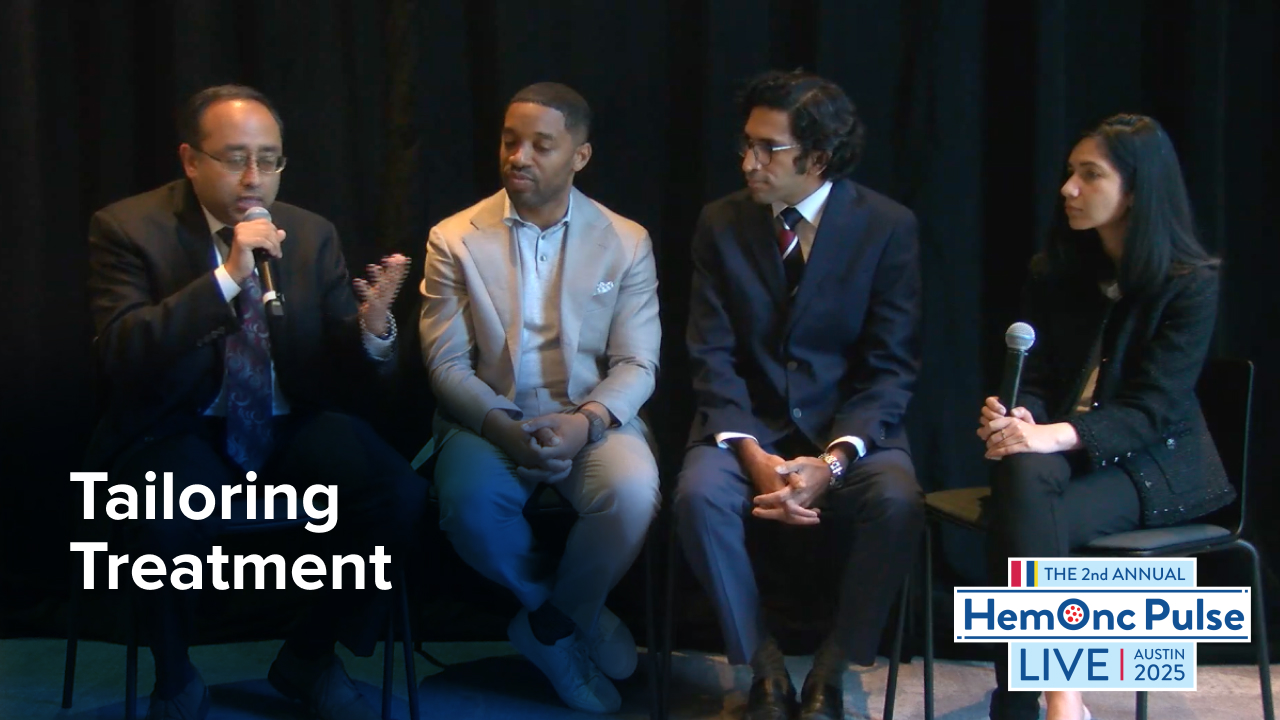
Selinexor plus ruxolitinib was effective in certain subgroups of patients with myelofibrosis (MF), according to preliminary research results presented at the 2023 American Society of Clinical Oncology Annual Meeting. The authors, led by Haris Ali, MD, of the City of Hope in Duarte, California, are building upon preclinical studies, which have shown that the combination helps certain patients who have had lower response rates to ruxolitinib monotherapy.
The phase I/II study, titled XPORT-MF-034, is evaluating the safety and efficacy of 40- and 60-mg selinexor once per week in addition to the standard ruxolitinib administration in 28-day cycles. Patients included in the initial analysis are those who had baseline data available and received treatment for 24 weeks or discontinued treatment by week 24. The researchers are exploring safety, spleen response, symptom response, and other factors.
At the time of the current analysis, the study had 10 participants who received 40 mg selinexor and 14 participants who received 60 mg selinexor. In all, 22 of them reached week 24 and were eligible for inclusion in the analysis. Median duration of treatment was 28 weeks (33 weeks for the 60 mg group and 22.5 weeks for the 40 mg group).
In all, 64% of patients achieved spleen volume reduction of 35% at week 24 (79% in the 60-mg group and 38% in the 40-mg group). In addition, 45% had total symptom score reduction of 50% or more (58% in the 60-mg group and 25% in the 40-mg group).
The most common adverse events (AEs) in the 60- and 40-mg groups, respectively, were nausea (mostly low grade) (79% and 70%), anemia (79% and 50%), and fatigue (57% and 60%). AEs that reached severity of grade 3 or higher were anemia (50% and 40%), thrombocytopenia (29% and 10%), and neutropenia (7% and 20%). Most of the AEs were reversible with dose modifications, but two patients discontinued treatment because of thrombocytopenia (n=1) and neuropathy (n=1). Although three participants died, none of the deaths were related to selinexor treatment.
Reference
Ali H, Kishtagari A, Maher KR, et al. Selinexor (SEL) plus ruxolitinib (RUX) in JAK inhibitor (JAKi) treatment-naïve patients with myelofibrosis: Updated results from XPORT-MF-034. Abstract #7063. Presented at the 2023 American Society of Clinical Oncology Annual Meeting; June 2-6, 2023; Chicago, Illinois.






 © 2025 Mashup Media, LLC, a Formedics Property. All Rights Reserved.
© 2025 Mashup Media, LLC, a Formedics Property. All Rights Reserved.